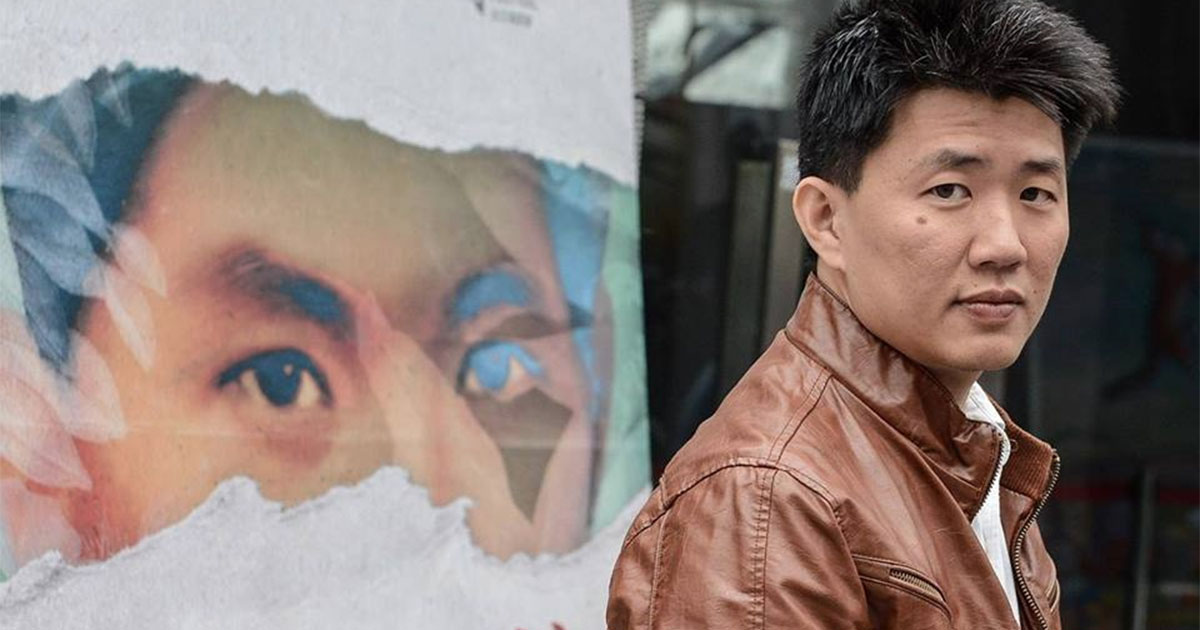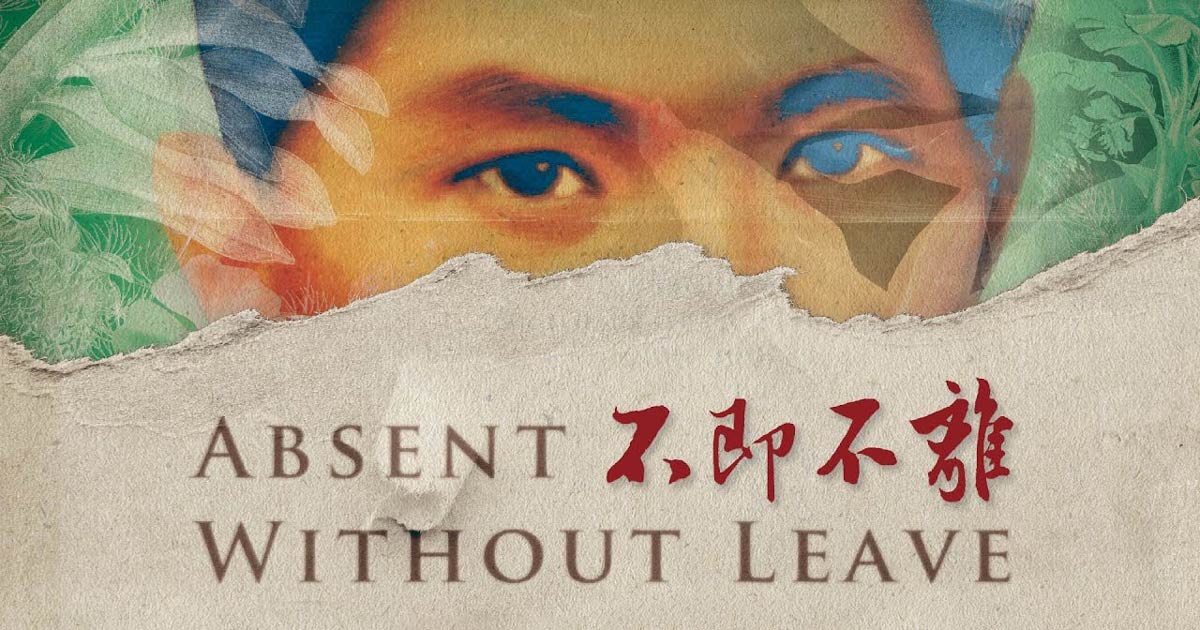
Banned film’s director searches for M’sian identity

Lau Kek Huat
He was born in Sitiawan, Perak, the hometown of the last Malayan Communist Party (MCP) secretary-general, Chin Peng. During festivals, his family members will light up candles and burn incenses in front of a portrait of his grandfather. However, the story of his grandfather was never told.
The grandfather was a MCP member. One day, the family heard three gunshots, they knew that he had been killed by the British forces. From then on, his father has no memories of his communist father.
Lau Kek Huat, 38, graduated from National Taiwan University of Arts, majoring in motion pictures. His debut feature documentary “Absent Without Leave” initially looks for the connection between his grandfather, father and himself, but eventually digs out the forgotten chapter of Malaysia’s official history.
Initially, he wanted to find out everything about his communist grandfather, but that journey went beyond his control. He managed to interview a number of ex-communist fighters and anti-Japanese soldiers.
However, the documentary was banned from being screened in Malaysia, for “having elements which may be negative for national development”.
Undoubtedly, Lau was disappointed about the ban.
“I thought it could be shown in Malaysia, this is my promise to them (the former communists),” said Lau in an interview with Malaysiakini.
“I planned to invite them to the cinema, and they will receive applause from the audience – that on-site feeling would be different.”
He believes that his interviewees would like to know what contemporary Malaysians’ views toward them are.

Empathy for the fighters
The 83-minute documentary was made from historical materials and interview clips of 60 hours. Lau hopes that through this film, Malaysian audiences can feel empathy for those who joined the independent struggles during that historical period.
“I think it’s with neither overbearing nor servile attitude that we proceed to tell their stories. We need to feel their feelings – not heroically, also not tragically.”
What if his grandfather was not a communist member, but helping the Commonwealth armed forces to kill the communists? Lau will still tell such a story of his grandfather, he said.
“I hope we have more stories from both sides. It’s important for self-reflection.”
The film’s production house Hummingbird Pictures claims that the film’s intention was not to portray the communists in a heroic light.
“The history of the Malayan Communist Party is a scar in the collective memory of this country… without mutual understanding, there is no chance for us to recover.”
So, the production house decided to make the film available for free online – only for Malaysians – between Feb 28 and March 5.
Lau Kek Huat studied business at the National University of Singapore before he became a primary school teacher in the country. Later, he decided to further study film in Taiwan.
He was awarded the Best Short Film Award twice (2009 and 2013) as well as the Best Director Award (2009) by the Taiwan Golden Harvest Festival, and has directed a few acclaimed short films.
He was selected as candidate in Golden Horse Academy 2013, which was led by renowned Taiwanese director Hou Hsiao-hsien.
In an interview, he mentioned Hou’s masterpiece “A City of Sadness”, where in one scene at a dinner table, he felt the same repressive atmosphere which his family shares.
Lau has been estranged from his father since young. They didn’t even speak with each other for almost a decade after Lau moved to Taiwan.
It turned out that his “absent father” also has an absent father – the communist grandfather who died young.
So he brought back his video camera from Taiwan, seeking stories of absent fathers from his family members and relatives.

5-year journey
Beyond his expectations, the 5-year journey of searching family histories dug up a hidden, untold chapter of Malaysian history.
Lau eventually went to Southern Thailand, Hong Kong and China to interview a number of former communist members. Some of them were sent back to China in the 60s, some stayed in Southern Thailand “peace villages”, while some returned to Malaysia after 1989 Hatyai Peace Agreement.
During the revolutionary era, many of the fighters were not necessarily well-equipped with Marxist theory or ideas of communism, but they were directly dissatisfied with foreign invasion and all forms of oppression. So, they chose to fight against injustice in the method they believed was right.
Yet, Lau is reluctant to tell these people’s stories through a grand historical narrative, as it will easily fall into the battle of ideology. He wants to avoid judging them in our own terms.
“I don’t have any political position, and I don’t want to argue whether theirs were right or wrong… I don’t want to use ‘big history’ or any political position to apply to them.”
“They believed in something, sacrificed their youth or even life for it. They should have their dignity preserved.”
“Human dignity can’t be violated… what I want to depict is the dignity of these seemingly small characters (under big history).”

‘Not a historian’
Many of these interviewees are already over 80 or 90 years old, but they still believe what they sacrificed will pay off – a change for a better world.
“I am not a historian, thus I am not rewriting history. Filming is about telling stories of the past, about how the past influences us.”
“Or, it is about what people will benefit from the past, when they understand history through films.”
Intentionally, “Absent Without Leave” did not interview any leaders of the struggles, but those untold characters with “flesh and blood”.
Some interviewees also expressed their curiosity to Lau, on why he doesn’t tell the stories of their party or leaders – why small characters like them?
“They have been burdened with too much pressure, the suffering was so big that they even didn’t think of themselves as a human being (but only subordinated to a party).”
“We also forgot that they are humans, we tend to use all kinds of labels to judge them. But we forgot that they are also humans, they participated (in communist struggles) just for simple reasons.”
Lau confessed that he knew little of communist history before shooting this film. In school, textbooks described the communists as terrorists; in society, such “sensitive” topics are not openly discussed; while in the family, many do not wish to recall the painful memories.
As a filmmaker, he challenges himself to touch upon taboos or things that he fears, such as the communist history and the relationship between father and son.
He browsed through related books on Malayan communists, including ex-members’ memoirs and essays written by researchers. He also spent quite a lot of money on getting historical film archives, only to allow audiences to really feel the atmosphere of that era.

Search for M’sian identity
Like many who grew up from Chinese-educated background, Lau’s Malaysian identity has always been obscured by racial politics. For him, this film allows him to return to the homeland.
In the last scene of the film, Lau accompanied his father back to Sitiawan to look for the ancestral house where his father was born, and possibly where his grandfather was killed.
However, they couldn’t find the exact location as the place is now surrounded by oil palm plantation.
“I don’t know where it (old house) is now,” his father said.
In the film, Lau’s aunt revealed that whenever his grandfather came back from the jungle, he would bring her and Lau’s father to shower – something that Lau’s father has no memories of.
“He (father) thought he has no father, but (after watching this clip)his expression seems to tell you that he found the bond connecting himself and his father,” Lau said.
“Only when people find the connection, then they would know they truly live in this place.”
“I, too, have been trying to find the connection. Or else, you have no ties with your homeland.”



